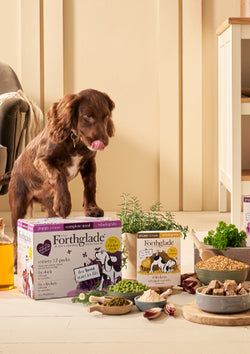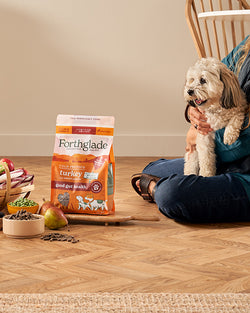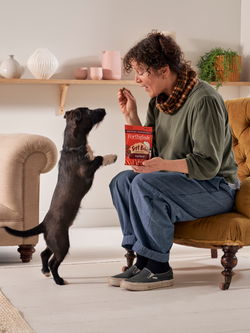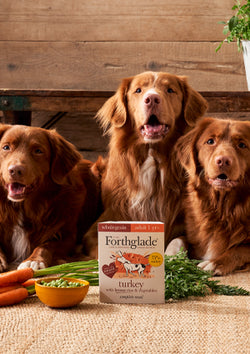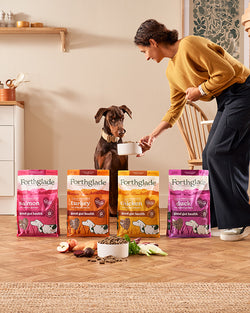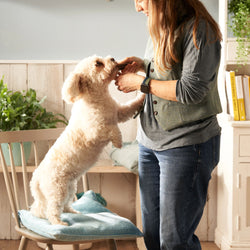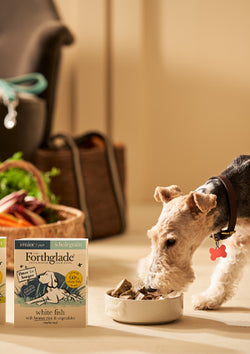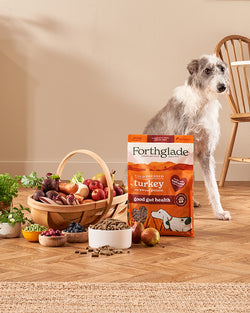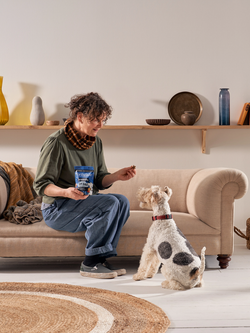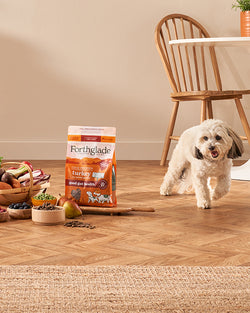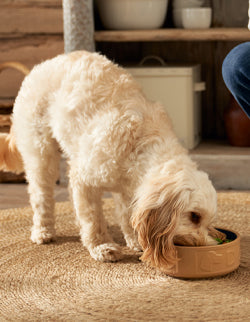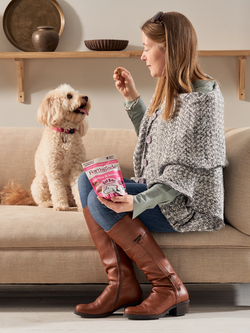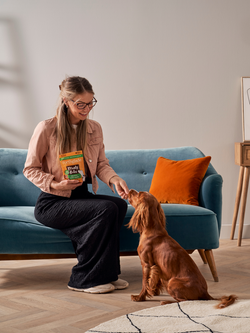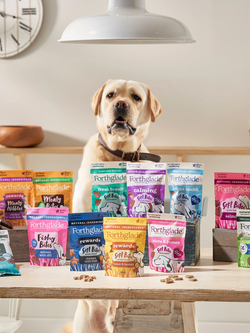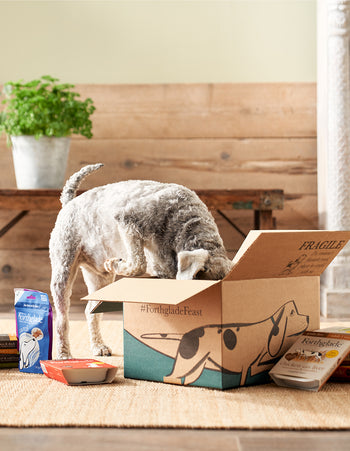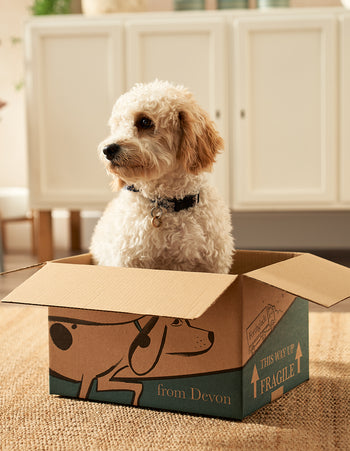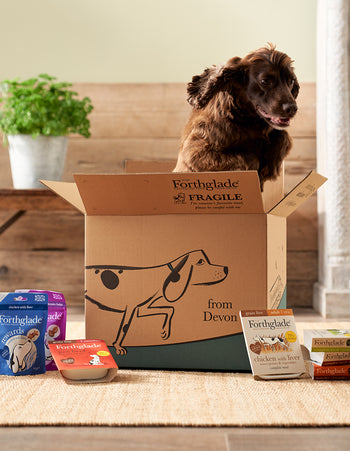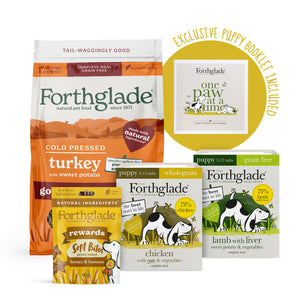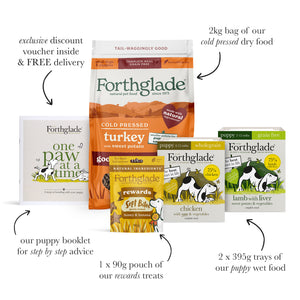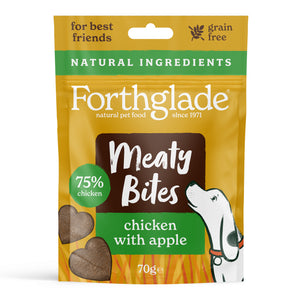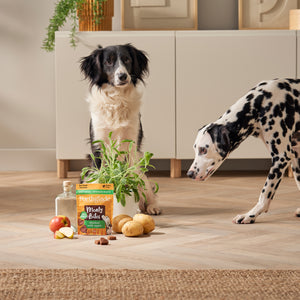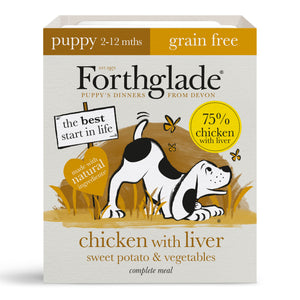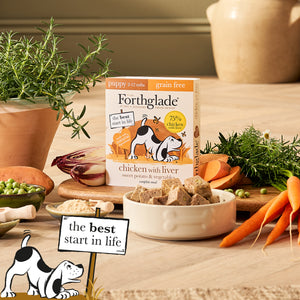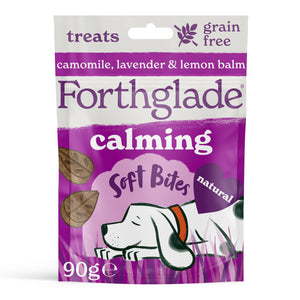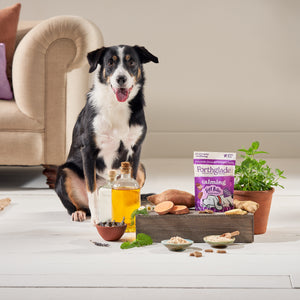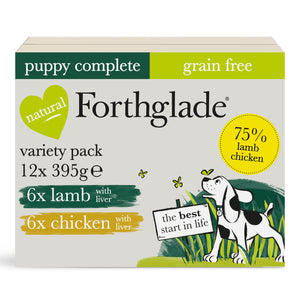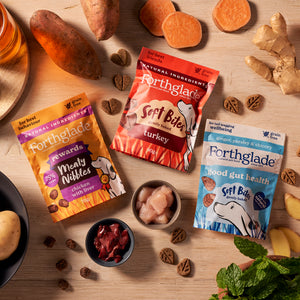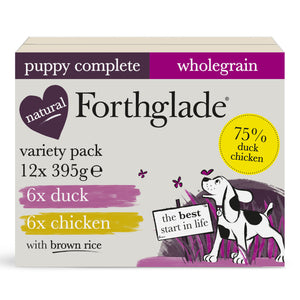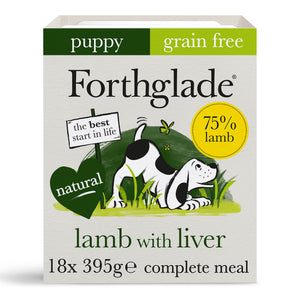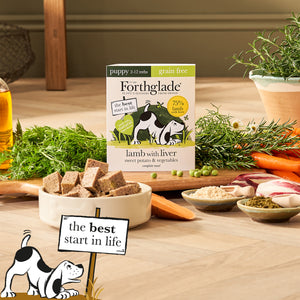Just like human babies, puppies go through a teething phase as they get older, too. Although puppy teething only lasts a few months, it can feel like a lot longer when they're chewing everything they can get their paws on to find that sweet relief.
While the chewing may be frustrating to you, it's important to remember that it's also very uncomfortable for your new pup. Luckily, we've put together this guide full of tips and tricks on how to help a teething puppy.

How Old are Puppies When They Lose Their Teeth?
Typically, puppy teeth can come in from as early as two weeks old, although this can depend on the breed. From around 3 months old, their 28-needle sharp baby teeth will start to fall out, and 42 adult teeth will begin to come through. Most of the time, puppies will swallow their baby teeth when eating, but you should keep an eye out as you may find some puppy teeth lying around on your floors or furniture, and the last thing you want is to step on a sharp tooth.
How Long Will a Puppy Teethe For?
The good news is that puppies don't teethe for too long. By the time a puppy is 6-7 months old, they should have of their adult teeth. During the teething phase, puppies are likely to chew on anything and everything they can get too, to help ease their discomfort. This includes, furniture, footwear, toys and even you.
However, it's important to note that some breeds, such as Chihuahuas or Jack Russells, can have stubborn puppy teeth that won't fall out on their own. While in most cases, this is harmless, it can sometimes lead to infections and other dental complications. So, if you're worried, take your puppy to the vet to get them checked.

Signs That Your Puppy is Teething
The most uncomfortable stage of your puppy's teething is around the 3-4 month mark. This is when you'll likely see the signs that they're struggling. These signs include:
-
Being irritable - a puppy's mood can often be unpredictable due to their development, but if you're noticing they're acting more irritable than usual, then it's likely due to them being distressed with teething.
-
Chewing and mouthing - although chewing and mouthing is normal puppy behaviour, if it's relentless, even while training your puppy to stop biting, teething may be the cause of it.
-
Face pawing - an easy sign to spot that your puppy's mouth is feeling sore is when they are visibly pawing their face and snout.
-
Loss of appetite - a teething puppy might find it too uncomfortable to eat, so will refuse their food.
-
Crying - you may notice your puppy crying or whimpering more as they try to tell you their mouths hurt.
-
Drooling - a puppy dealing with sore gums will produce a bit more drool than usual.
-
Bleeding mouths - there may be small spots of blood on items they've been chewing.

How Can I Help My Puppy With Teething?
It's never nice to see an animal in pain, especially a beloved pet. As a new puppy owner, you'll no doubt want to try everything to make the teething process as pain-free as possible. Below, you'll find our top tips to help you get through the teething stage.
Remember, if nothing seems to help your puppy and you're worries about their teething discomfort, contact your vet to get them checked for any underlying issues.
Offer Plenty of Chew Toys
Puppy chew toys are not only extremely durable but designed to help ease the pain of teething. There are plenty of options to choose from including different textures and flavours, so we recommend rotating them regularly so your pup doesn't get bored and decide to chew on something else instead. Some chew toys or a small towel or flannel soaked in water and then tied into a knot can be frozen to help numb the pain.
Try to avoid giving them rawhide or yak milk chews while teething, as they can get gummy and sticky and accidentally pull baby teeth out when they're not ready.
Give Frozen Treats
Offering frozen treats can not only be a welcome and tasty distraction but also help to numb and relieve the pain in their gums. Some frozen treats to try include:
-
A lick mat with fruit smashed into it
-
A Kong toy with Greek yoghurt and blueberries
-
A cold carrot
-
Frozen strawberries
-
Frozen banana slices
-
Frozen cucumber slices
-
Frozen mini bagels
Make sure to check what fruits and vegetables are suitable for puppies before feeding them.

Switch to Wet Food
If your puppy refuses to eat dry food, it might be because it's just too painful to eat with sore gums and emerging teeth. Switch to wet puppy food, as this will be easier for their mouths to handle and encourage them to continue eating well.
Use it as a Training Opportunity
Teething offers a great training opportunity for some bite inhibition behaviour. While nipping and biting are natural parts of puppyhood as they play, it's important to stop this behaviour as they get older and their teeth become more painful. Training your puppy to stop biting will not only help to ease any boredom and provide a distraction from the uncomfortable teething, but it'll also help you bond with your puppy and curb any unwanted behaviour early, so it's a win-win situation.
Make sure to choose tasty, high-value puppy treats while training to keep them engaged and excited.
Every puppy will go through the teething phase and it can be a very difficult time for both you and your pup but it's important to remember you're not alone.
Teething can be a very difficult time for both you and your pup but it's important to remember that you're not alone, every puppy will experience this stage and it's just another part of owning a dog. But, luckily, it doesn't last forever and once they've finished teething you'll have your adorable, loving and playful puppy back to their normal selves again.
If you're worried by the teething process or your puppy is experiencing some unusual symptoms, always speak to your vet who will be able to help and advise on the best course of action.
Ensuring your puppy has the right diet and nutrition is vital for their overall health and well-being. Our puppy food has been specially designed to support puppies as they grow into healthy and happy dogs.






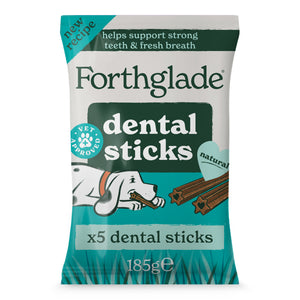

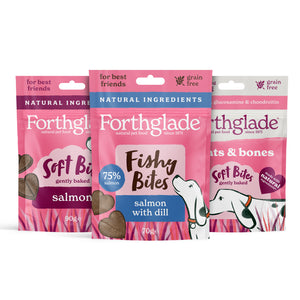
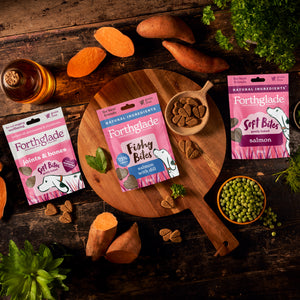


 FAST & FREE DELIVERY ON ORDERS £40+*
FAST & FREE DELIVERY ON ORDERS £40+*
 SUBSCRIBE TO SAVE 10% OFF EVERY ORDER
SUBSCRIBE TO SAVE 10% OFF EVERY ORDER
 OVER 13,600 5 STAR REVIEWS
OVER 13,600 5 STAR REVIEWS


